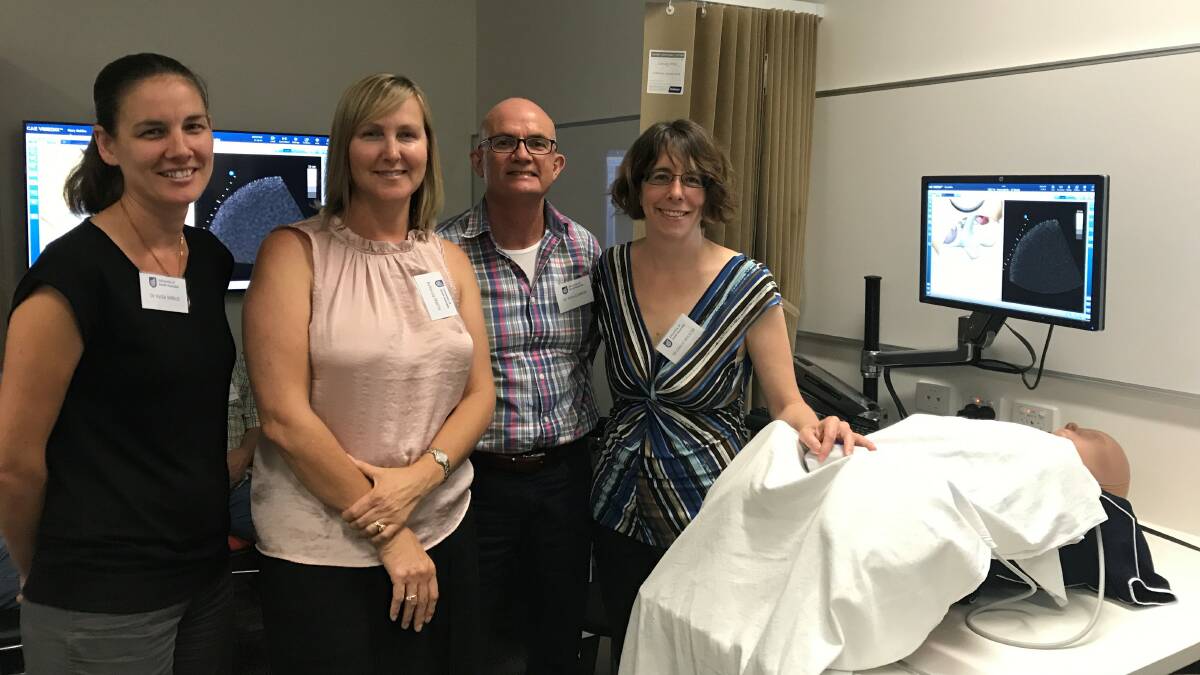
A program aimed at improving antenatal care in remote communities has been extended until October 2020, saving the lives of Northern Territory mothers and babies living in remote communities.
Subscribe now for unlimited access.
$0/
(min cost $0)
or signup to continue reading
The Hospital Research Foundation (THRF) and the University of South Australia’s (UniSA) Healthy Newborn Project gives remote doctors and midwives the opportunity to attend vital ultrasound training.
The newly acquired skills can then be administered back in their communities – many of which have been without this important service.
Nurse Sophie Kieliszek, who works in a remote outreach community about 800km from Alice Springs, was one of 25 doctors and midwives who attended two workshops in Adelaide earlier this year.
She said the course gave her invaluable skills to help expectant mothers and aid early diagnosis.
“I had no experience with ultrasounds beforehand,” Ms Kieliszek said. “We had a machine but I didn’t know how to use it so I jumped at the opportunity to do the course.
“It’s made a huge difference to the quality of care we can give to the community, and it’s also really lovely for the women to be able to see their babies.
It’s bridging the gap between women in remote areas and women in the city
- Nurse, Sophie Kieliszek
Dr Chris Clohesy, who works in the remote Aboriginal community of Maningrida, 600km east of Darwin, said the workshop helped reinforce his skills to be able to deliver more informed advice.
“It’s a core skill to have for remote doctors and nurses and I feel more confident in my approach now,” Dr Clohesy said.
“It is especially helpful in an emergency situation where, for example if they’re in labour, I can do a quick scan and check where the head is or see the heartbeat.”
An additional $160,000 will be provided by THRF to support the program for a further 18 months until October 2020.
Amongst other research initiatives, this additional funding will allow 12 more rural healthcare professionals to take part in an antenatal ultrasound workshop and 12 past participants to attend a follow-up session offered to reinforce their skills.
The Healthy Newborn Project is being led by Associate Professor Nayana Parange, Professor Eva Bezak and their team from the UniSA.
“Ultrasound plays an integral part in antenatal care that can provide timely diagnosis of complications including ectopic pregnancies, which can be life-threatening” professor Parange said.
“However research has shown that ultrasound access is limited, delayed or non-existent in many rural andremote communities in Australia.
“We are very grateful for THRF’s funding and support in order to make this vital training happen.”
More reading:
In addition to the Healthy Newborn Project, the team will be conducting an Australia wide needs analysis survey to provide data around access to antenatal ultrasound scans in rural and remote communities across Australia.
Over the next 12 months the research will examine factors such as the impact of needing to travel, and determine how many lives could be saved through improved access to antenatal ultrasound.
The extension of the project will also enable the team to perform a systematic review and cost analysis of Point-of-Care Ultrasound (POCUS) in remote and rural Australia and to develop an educational augmented realitymobile application for pregnant women to improve lifestyle choices during pregnancy.
It is hoped these proactive initiatives will address some of the barriers identified, provide data and a physical resources aimed at closing the gap and saving the lives of mothers and babies in rural and remote communities.
Health professionals in regional and rural Australia who are interested in more information about the training can contact Amber Bidner (Amber.Bidner@unisa.edu.au) from the University of South Australia.
While you're with us, you can now receive updates straight to your inbox each Friday at 6am from the Katherine Times. To make sure you're up to date with all the news, sign up here.
What else is making the news?

